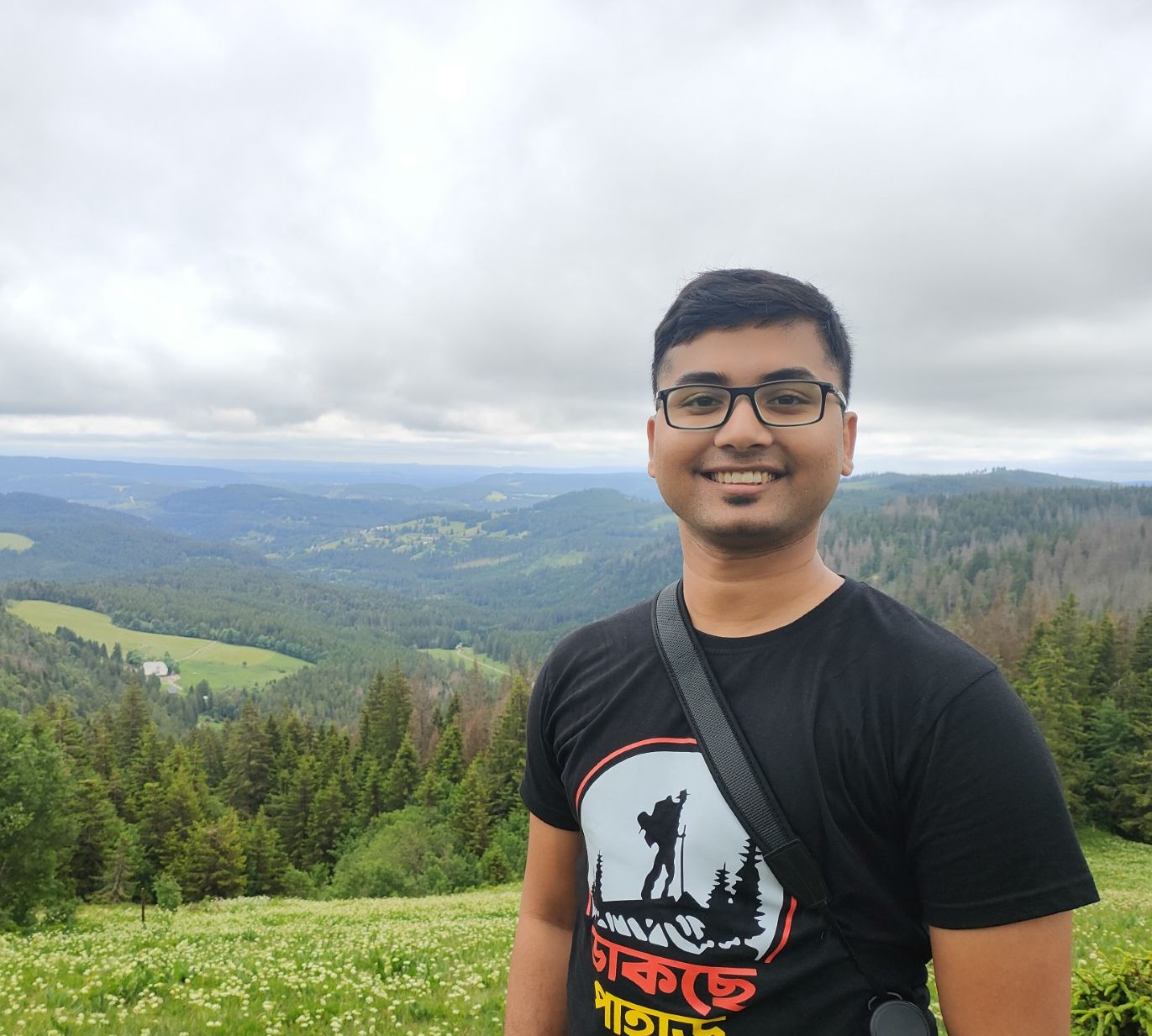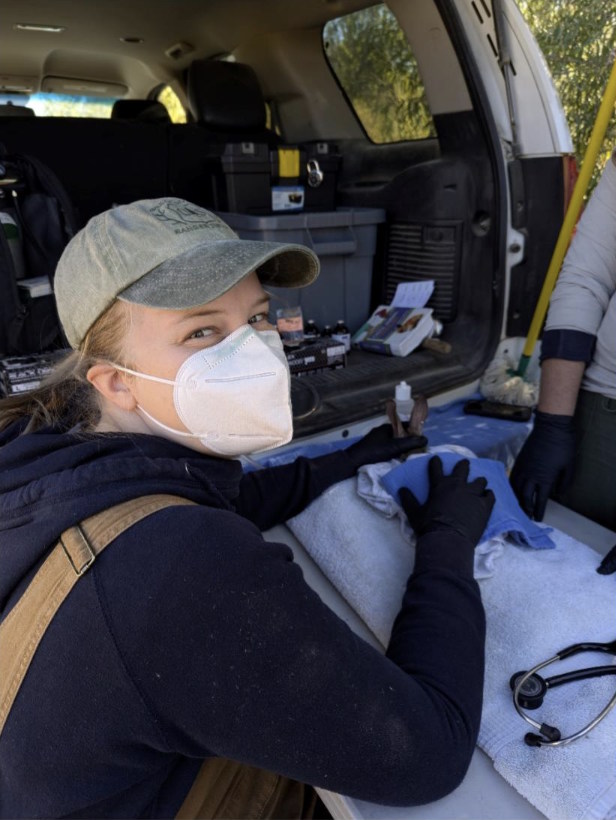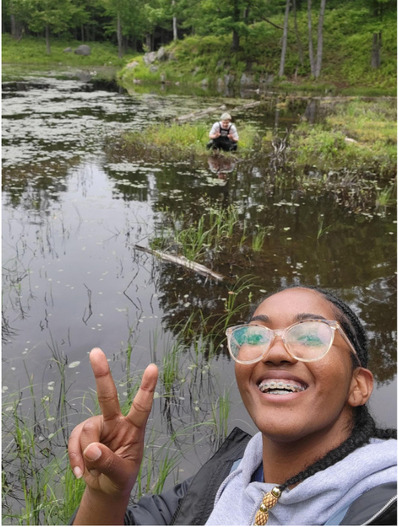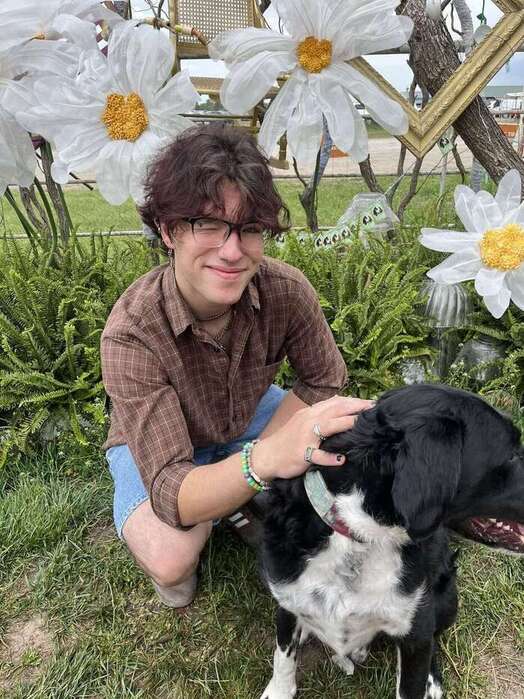Post-doctoral scholars
Dr. Nicki Barbour
Nicki is a movement ecologist interested in applying quantitative methods to better understand the ecology of mobile taxa and to inform novel conservation tools. Her has worked on the movement ecology of sea turtles, Sonoran pronghorn spatial ecology and resource use, finfish aquaculture placement, dynamic management tools for leatherback turtles, shellfish ecolabeling, and, most recently, on terrestrial animal movement and road interactions. She is soon moving on to an assistant professorship at Towson University (congratulations!)
Dr. Benjamin Larue
Ben completed his Ph.D. at the Université de Sherbrooke in Québec, and has been a member of the Fate of the Caribou team since 2021. His interests lie in behavioral responses to anthropogenic disturbances, human-wildlife coexistence, and biostatistics. He is interested in further integrating human communities and their interests in ecological research and conservation. He is a recent recipient of a Libre Eco fellowship (félicitations!).
Dr. Nate Wehr
Nate is a “Visiting Scholar” who has (paradoxically) been in our lab longer than the lab has existed. He is interested in movement ecology and biodiversity and collaborates on several of our projects on cognition and sptial ecology, while also managing long-term monitoring projects at Cranberry Lake Biological Station. Nate is also a post-doc in the Pennsylvania Cooperative Fish and Wildlife Research Unit where he is developing agent-based models of CWD transmission.
Graduate students
Chloe Beaupré
Chloe is a PhD Candidate fascinated by movement ecology, with an emphasis on linkages to survival. Her goal is to pursue research that fills information gaps and can be applied to important management actions. Chloe came to Syracuse from Colorado’s Western Slope after finishing a dual degree (Master in Environmental Management, Master of Science in Ecology), where she studied several of Colorado’s ungulates.
Megan Perra
Megan is a PhD Candidate interested in how biological cues like soundscapes and interspecific vocalizations influence movement decision making in caribou. She completed her masters at the University of Alaska Fairbanks, where she studied caribou auditory physiology and the soundscapes of the Arctic Coastal Plain. Check out her interview on Quirks & Quarks.
Sydney Opel
Sydney is a Master’s student with an interest in carnivore conservation and ecology. Her goal is to seek a better understanding of movement, behavior and trophic interactions of carnivores to aid in the protection and conservation of carnivores in their native habitats.
Sagnik Nandy
Sagnik is a Ph.D. student broadly interested in spatial ecology and particularly in movement of animals, exploring the cognitive and social drivers of movement decision-making in barren-ground caribou, and hopes to deeply understand and eventually help develop statistical and mathematical tools. When not working, Sagnik daydreams about climbing snowy peaks and high mountain passes in the Himalaya.
Melinda Houtman
Melinda is a master’s student co-advised by Dr. Jonathan Cohen. Melinda is joining the New England Cottontail project where she will be using cellular tracking technology to determine nest site characteristics of these elusive rabbits. She comes to ESF from California where she worked for three seasons with endangered Riparian Brush Rabbits.
Under- and recent graduates
Katleen Gonzalex-Legra
Katleen (class of 2025) studied Conservation Biology at SUNY College of Environmental Science and Forestry to further her understanding of human impact on wildlife. She joined the Fate of the Caribou Project to connect her teachings with current studies, as well as learn new knowledge relating to soundscapes and categorizing data, and engage in hands-on work such as constructing audio collars to monitor Caribou vocalizations.
Zoe-Hateya Mercer
Zoe (class of 2025) graduated from ESF, now with a bachelors in Wildlife Science! Initially joining Dr. Gurarie’s lab to assist Sydney Opel and her mesopredator study and more recently, with Celebrity Wright’s female caribou health research. They have a future plan to eventually work as a paleontologist.
Dalton Adams
Dalton is a conservation biology major going into my fourth year, currently working with wolf camera collar data from the Yukon-Charley Rivers National Preserve. Dalton is interested in the study of human-wildlife conflict, movement ecology, and carnivore conservation and ecology in high-conflict areas.
Celebrity Wright
Celebrity Wright graduated from SUNY ESF, class of 2025, with a B.S. in Wildlife Science. Her primary interests lie in the human impact on wildlife, with a focus on mammalogy, herpetology, and marine invertebrate zoology. She is currently researching the correlation between female barren-ground caribou health and botfly presence in response to the notable decline in the barren-ground caribou population, primarily attributed to habitat loss.
Gabriella Pereira
Gabriella is a senior studying conservation biology and applied statistics. Initially intrigued by coding with R, Gabriella joined the lab to enhance their knowledge and skillset with the program. Currently, they are learning how to assess the permeability of barriers for various large-scale mammals. Gabriella is interested in studying movement ecology, human-wildlife relationships and how culture and language intertwine with conservation efforts.
Former members
Dr. Ophélie Couriot
Ophélie - has led, co-led, and contributed deeply to many of our caribou and convergent science efforts as a post-doc from 2021-2025, is now an assistant professor at University of Alaska, Fairbanks.
Katya Khadonova
Katya graduated with a MSc degree in December 2024. Her work was on examining the role of selective predation by wolves on the spread of chronic wasting disease (CWD) in white-tailed deer in the western Great Lakes Region. She is currently a quantitative ecologist with the Illinois Natural History Survey.
Marina Favarini
Marina is a PhD student at the Federal University of Rio Grande do Sul, in Porto Alegre, Brazi - and a former distinguished visitor to our lab. Marina studies several species of small cats: margay, Geoffroy’s cat, pampas cat. Since 2016, she has been developing research and conservation programs on spatial ecology and density of felines in southern Brazil, in the Pampa and Atlantic Forest biomes, through the use of camera traps and telemetry (VHF and GPS).
Other
Anna Brose
Anna is a communications and program manager for the Fate of the Caribou Project. Anna grew up alongside caribou in Alaska before receiving a bachelor’s in Wildlife Biology at Colorado State University. With extensive field experience across the United States, she has worked for several state and federal agencies in various wildlife research positions. She completed her Master’s in Wildlife Ecology at the University of Wisconsin - Madison in 2021, where she studied elk habitat use in northern Wisconsin. Anna is a self-taught science communicator and illustrator, and is a wildlife artist on the side.
















